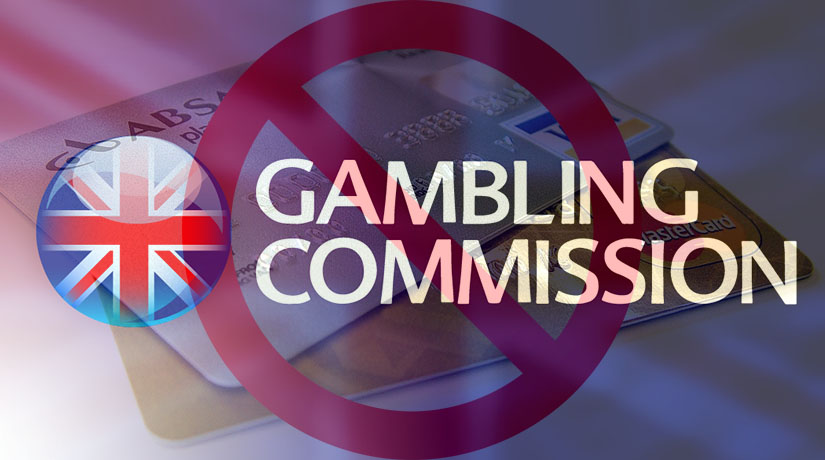 Published: 24.04.2020, 18:48
Published: 24.04.2020, 18:48 5 min read
5 min readIn the summer and fall of 2019, the UK Gambling Commission (UKGC) carried out an open conference in order to take a closer look at its regulations regarding the promotion of safe gambling. After the conference wrapped up, the UKGC declared that it would make several changes in order to reduce the amount of gambling-related harm within its industry.
- The UKGC is Making Progress on Its Proposed Safer Gambling Provisions
- A Guide to the UKGC’s 2020/2021 Business Plan
One of the changes, which became effective on the 14th of April, 2020, was to forbid the usage of credit cards on gambling services. The UKGC found that approximately 800,000 players pay for services via credit. Furthermore, approximately 22% of those users are classified as “problem gamblers.” Plus, an additional but unspecified percentage could be at risk of developing an addiction.

The UKGC’s blanket ban will give protection to these vulnerable individuals. As indicated by the Commission’s chief executive, Neil McArthur, using credit while gambling has the potential to lead to serious financial repercussions. Due to the Commissions’ decision to prohibit the use of credit cards on gambling services, it is effectively reducing the number of people who would gamble away money that they don’t possess.
Operators will only be able to accept e-wallet payments if the services do not allow the use of credit cards for gambling. European fintech startup Revolut, which is a neobank, has stated that it has prohibited all transactions with UK gambling sites. Revolut users will not be able to access their cards as a payment option on these sites. Furthermore, the payment card will not be able to be used in any land-based casinos within the UK. Revolut stated that many people use the Revolut card in a responsible manner, but that the new UKGC legislation will have a great impact on protecting at-risk customers.
Consumers will still be able to use credit cards to purchase lottery tickets and scratch cards at physical retail outlets.
McArthur drew attention to the fact that some consumers have racked up thousands upon thousands of pounds of debt due to their ability to utilize credit cards for gambling. Furthermore, credit card companies often charge hefty fees, which would make the problem worse. Consumers may chase their losses in order to try to pay off these fees.
McArthur acknowledged that some gamblers choose to use their credit cards simply because they are a convenient option of paying. However, he strongly believes that the risk of harm outweighs any potential benefits of convenience. McArthur stated the Commission would closely monitor the effects of the ban to make sure it does not cause any unforeseen scenarios for consumers.
Banks, as well as gambling operators, have engaged in talks with the DCMS in order to figure out how they can minimize consumer risk. They discussed ways that they could possibly utilize customers’ data and innovative technology to assist their efforts, and credit card usage was brought up.
MP Helen Whately gave a media statement regarding the credit card situation. Whately said that even though many consumers engage in responsible gambling, there are still numerous users whose lives are destroyed by addiction. She commended the Commission’s decision to prohibit the use of credit cards, but she continued on to say that there should be more measures enacted to protect consumers. She revealed that national specialists would review the Gambling Act to make sure that it is up to date with modern digital innovations. Furthermore, she will be launching an addiction treatment initiative sometime this year.
What Other Changes Will the UKGC Implement?
Recent changes include improving identity and age verification measures, reducing the maximum wager on certain betting machines, and prohibiting young adults from joining VIP schemes. The Commission has been in constant communication with operators, banks, and various social media platforms. Through these communications, the UKGC has clearly stated that the involved parties must use socially responsible practices. For instance, they should use customer data to help their users manage spending in a safer manner. Furthermore, many major UK banks are considering using a mechanic that will allow their customers to switch off gambling app spending.
The UKGC is also planning on taking actions to increase the efficiency of self-exclusion programs. The Commission believes that these programs should be combined with payment restrictions and software that blocks users from visiting gambling sites.
2020 will see a continuation of last year’s ban on gambling advertisements during sports events that are broadcast before 9 p.m. This regulation was put in place in order to reduce the exposure of children and vulnerable individuals to gambling-related content.
In previous years, operators had a 72-hour window of time to verify players’ ages. This gap allowed consumers to play for three days while the verification was still processing. Now, users may not partake in any gambling activities until the operator has verified their age. This regulation should play a large role in preventing underage gambling. Users will also not even be able to play the free versions of any games prior to age verification.
The UKGC has also recently been doling out hefty fines to operators who have not been putting their customers’ best interests first. This development followed soon after the National Audit Office reported that the Commission does not bring in enough revenue to remain efficient and responsive. Perhaps the UKGC is going to use the additional funding brought in from fines to promote social responsibility even further.
Yet, despite the surge in gambling-related harm, the Commission is choosing to lay off many of its employees. Some industry consultants believe that the UKGC can’t improve its regulations while laying off so much of its workforce. Others believe that the layoffs will reduce costs, which will help the Commission stay afloat. It is a controversial topic, and only time will tell whether the UKGC will be able to introduce stronger regulations amidst the personnel shuffle.











